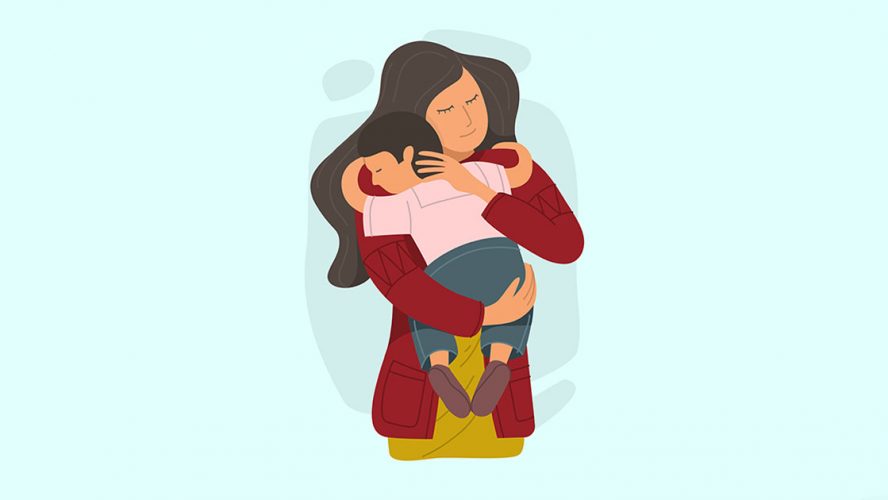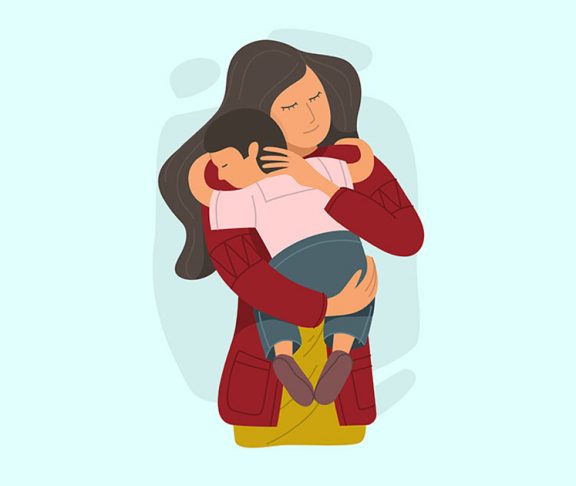There are many pathways to the end goal of adopting a child. Some of the paths are more predictable and some more fraught with detours, but all people wishing to bring an adopted child into their lives have some similar requirements.
Home study
A home study is an investigation performed by a licensed agency in your home state. The contents and requirements of home studies may vary from state to state, but expect that you will be asked to provide biographical and financial information, proof that you are of sufficiently good health to parent, and references. You will be interviewed in your home and provided with education on parenting and specific issues concerning parenting an adopted child. If you are considering an international adoption, your home study must be done by an agency authorized to work on international adoptions. If you are considering foster care and hoping to adopt through a state child welfare system, your home study will usually be conducted by your state child welfare agency.
A home study is the prerequisite for moving forward with any adoption process.
Background checks
All home studies also incorporate a series of background checks. These will include state and federal criminal background checks, child abuse records checks, checks of state and federal sex offender registries, and often domestic violence background checks.
Foster care adoption
At any moment in time in the United States, about 100,000 children are in foster care and waiting to be adopted. This type of adoption is called a public foster care adoption. Many of these children may be legally “free” for adoption, meaning their birth parents’ rights have already been terminated or there may be ongoing court proceedings to complete a termination of parental rights. Along with a home study, prospective adoptive parents need to take classes to learn about parenting strategies for children who have suffered abuse, neglect, or other trauma. Often children adopted from foster care are older and may have challenging medical or behavioral needs.
Adoptions from foster care differ from private adoptions in that there are financial incentives. Because it is good for our communities when children are raised in stable homes, state and federal governments try to lessen the financial burden for families adopting from foster care. For example, the cost of the home study and trainings are typically subsidized. There is usually no placement fee and the attorney fees are often partially or completely paid by the state agency. In some circumstances, the child may be eligible for an adoption subsidy. This includes health insurance coverage until the child turns age 18, or 21 in some states, and, at times, a monthly cash subsidy if the child is eligible. An experienced attorney knows what is reasonable in a particular case and will be able to go over the details of a subsidy agreement with a family. Additionally, a family adopting from foster care can take the entire federal Adoption Tax Credit in the year of finalization even if the adoption cost the family less than the entire amount.
It is not unusual for children in foster care to remember details about their birth families and sometimes contact continues between the child and members of the family. Any formal arrangements for contact after the adoption are made on a case-by-case basis. They may not be legally enforceable in some states and must be planned with the best interest of the child as the primary consideration.
Agency and private adoption
An agency adoption involves placing or adopting a child through a state licensed child-placing agency. A private or independent adoption, on the other hand, involves a direct placement between the pregnant person and the prospective adoptive parent or parents, without the use of an agency and no agency fees. This type of adoption may not be possible in all states. Some states require that an adoption agency be involved in all adoptions, even if the agency did not facilitate the match. In other words, even if the pregnant person and the prospective adoptive parent or parents found each other on their own, in some states an adoption agency will still have to be involved. These are often called “agency-assisted” adoptions.In those states where agencies do not have to be involved at all, the laws still vary dramatically, including how an adoptive parent can locate a birth mother and what expenses can be paid in an adoption. It is extremely important to know your state’s laws concerning which expenses may be paid to the pregnant person during the adoption process. Failure to follow these laws may result in criminal charges. With the internet becoming the central way people research information, advertising online to locate a match has become one of the most popular tools in private adoption but is not permitted under the laws of some states. Therefore, it is important to consult with an attorney prior to beginning your adoption journey, in order to understand which method of adoption is right for you and to ensure that you comply with the laws in your state.
It is also possible to adopt across state lines, either through an agency or privately. These are called “interstate adoptions” and require compliance with the Interstate Compact on the Placement of Children (ICPC). Being open to the possibility of adopting a child born in another state may increase the “pool” of prospective adoption situations available to you; however, these types of adoptions may cost more money as there are professionals, including attorneys and or agencies, involved in both states.
International adoption
As of the date of this article, international adoption has become very complicated due to the COVID-19 pandemic as well as government regulations both in the United States and in many countries with whom the United States has a history of collaborating on international adoption. International treaties also impact the movement of children from one country to another for adoption. It is essential that prospective adoptive parents consult experienced attorneys and agencies when considering international adoption. Actions taken without qualified advice can create permanent roadblocks to a successful international adoption.
Matching with agencies vs. facilitators
Adoption agencies are licensed, regulated, and monitored by the state in which they work. Prospective adoptive parents who work with a licensed adoption agency must meet certain minimum requirements. Expectant parents are provided with services such as counseling, legal assistance, support during the pregnancy, and help with the adoption plan and plans for future contact. Adoption agencies typically assign social workers to work with prospective adoptive parents and biological parents, provide counseling, mediate future contact, complete an investigation of the prospective adoptive family, arrange the legal consent process, and connect adoptive parents and biological parents with legal and supportive resources. Adoption agencies frequently consult with adoption attorneys to make sure that laws, rules, and regulations are being followed appropriately.“Facilitators” are unlicensed and unregulated. They are not required to meet any standards involving education, experience, insurance, or personnel. Facilitators are not monitored. They have no license to lose. They typically charge a substantial amount of money for advertising and “matching” prospective adoptive parents with a birth mother. Once they make a match, they are no longer involved. They do not provide counseling or legal advice. They do not help make sure your adoption plan is followed and finalized. In many states, it is against the law to use and pay a facilitator to be matched with an birth parent, so both parties should be aware of their state’s laws regarding facilitators. Failure to know and understand this information may prevent the adoption from being finalized.
While it may be tempting to respond to a facilitator’s advertisement promising quick matching, prospective adoptive parents should obtain advice on their home state law by first consulting with an experienced adoption attorney or a licensed adoption agency.
Open and closed adoptions
One significant decision to be made when seeking to adopt is to decide on whether to enter into an open adoption. Today, it is increasingly common for birth parents and adoptive parents to communicate directly with one another before, during, and after the adoption process is complete. That contact can take place in many different ways including through the exchange of emails, letters, phone calls, video conferences, and in-person visits. A closed adoption would mean that the birth parents may never meet or communicate with the adoptive family and once a placement is made, there will be no future communication between the birth family and the adoptive family and child. These decisions must be explored early on in the adoptive process to be fair to birth parents seeking to match with an adoptive family that will honor their wishes for an open or closed adoption.
Meeting in person allows the birth parents and adoptive parents to get to know one another and often provides the birth family with the confidence of knowing that they have selected the best family for their child. Many birth parents who have ongoing contact with the adoptive family find that receiving information about the child, and knowing that the child is thriving, helps to ease their feelings of loss. Children who are in direct communication with their birth family may come to understand that their birth parent didn’t abandon them but instead made the decision to place them for adoption out of love for them. Many adopted children also benefit from having a direct connection with another person with whom they have a shared biology. The benefit for adopted persons to obtain updated medical information from genetically related family members is also undeniable. While some adoptive parents fear that an open adoption will confuse their child, ongoing research has not born out that concern.Unfortunately, there are situations where an open adoption is either not an option or is not the best choice for the child. Some birth parents do not want an open adoption because they are afraid that the ongoing contact will be a constant reminder of the painful decision they made at a difficult time in their life. They may believe that a closed adoption will better allow them to emotionally heal. Other birth parents have not shared the fact of their pregnancy with their family or community and they may fear that an open adoption will undermine their desire for confidentiality. There are also times when open adoption is not in the child’s best interest due to the birth parents’ circumstances. Finally, in some states, post-adoption contact agreements can be enforced by courts and in some, these agreements are not enforceable.
Adoption agencies and attorneys will assist both birth parents and adoptive parents in making decisions on post-adoption contact.
Getting started
If you are considering forming or growing your family through adoption, the best first thing you can do is to talk with an experienced adoption professional. In many states, that will be an adoption agency, but could also be an adoption attorney.
People are often concerned or misinformed about the costs of adoption. There are several grant programs available nationwide, as well as the federal Adoption Tax Credit, and some employer adoption reimbursement programs which may help. Some states also now have their own state adoption tax credits as well.
The Academy of Adoption and Assisted Reproduction Attorneys (AAAA) provides a state-by-state listing of experienced adoption attorneys and a directory of adoption agencies affiliated with the Fellows. You can view these directories at www.adoptionart.org.
Talking with an adoption professional does not obligate you to pursue adoption, but it is important for you to have your questions answered regarding cost, timing, home studies, expectant parent rights in your state, and the legal process. This will help you to evaluate adoption among your other options. It is your right and responsibility to be informed.

